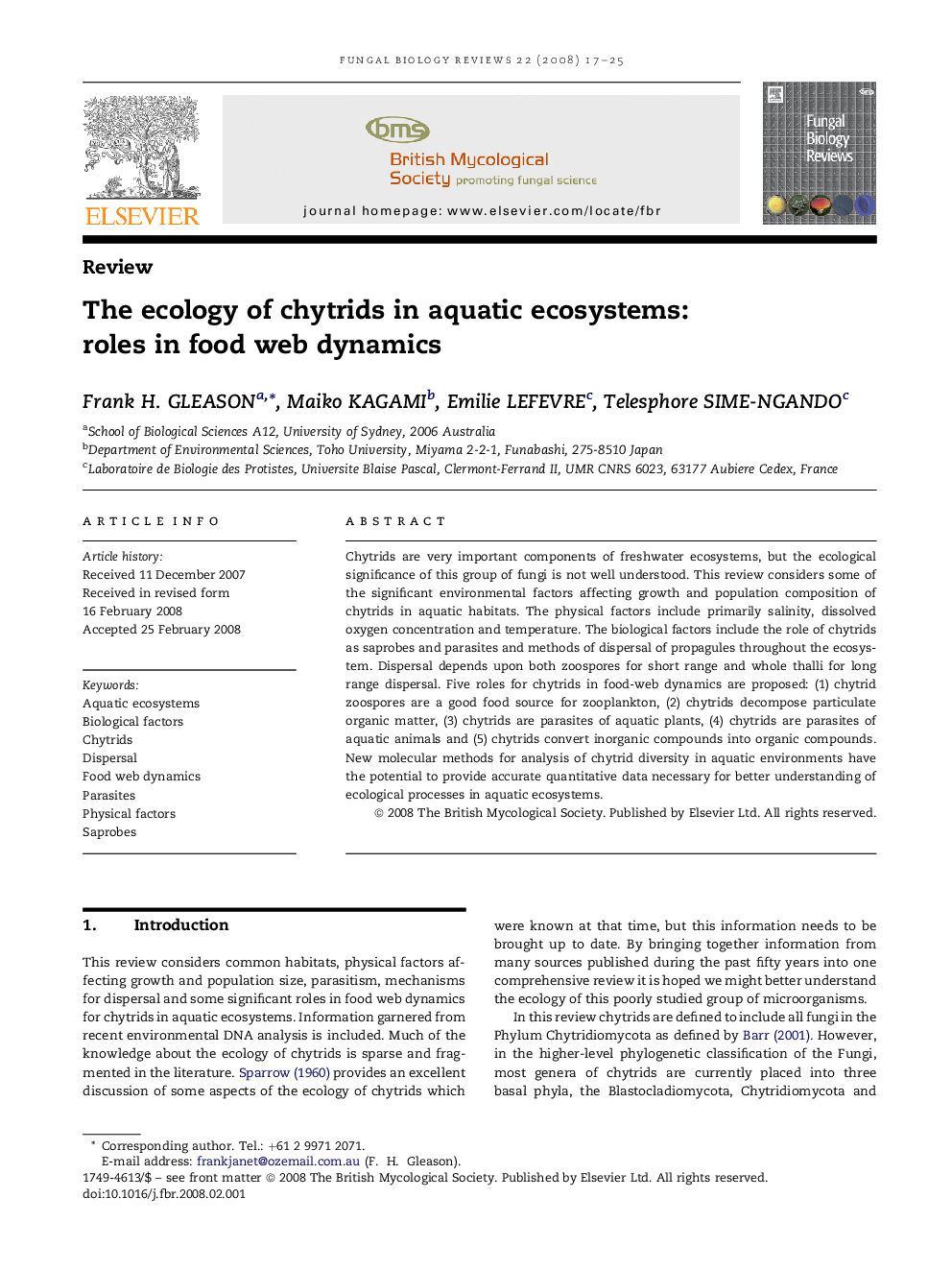| Article ID | Journal | Published Year | Pages | File Type |
|---|---|---|---|---|
| 2180568 | Fungal Biology Reviews | 2008 | 9 Pages |
Chytrids are very important components of freshwater ecosystems, but the ecological significance of this group of fungi is not well understood. This review considers some of the significant environmental factors affecting growth and population composition of chytrids in aquatic habitats. The physical factors include primarily salinity, dissolved oxygen concentration and temperature. The biological factors include the role of chytrids as saprobes and parasites and methods of dispersal of propagules throughout the ecosystem. Dispersal depends upon both zoospores for short range and whole thalli for long range dispersal. Five roles for chytrids in food-web dynamics are proposed: (1) chytrid zoospores are a good food source for zooplankton, (2) chytrids decompose particulate organic matter, (3) chytrids are parasites of aquatic plants, (4) chytrids are parasites of aquatic animals and (5) chytrids convert inorganic compounds into organic compounds. New molecular methods for analysis of chytrid diversity in aquatic environments have the potential to provide accurate quantitative data necessary for better understanding of ecological processes in aquatic ecosystems.
